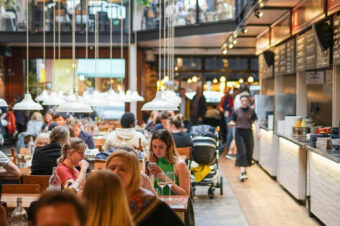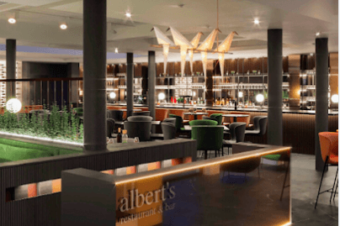With just 50 days to go until the General Election, today’s Budget was very much a political statement aimed as much at setting out and defending the Government’s record as it was at demonstrating to voters that “Britain is standing tall again” and so raising fears of a “return to chaos”, says the Association of Licensed Multiple Retailers in its budget briefing.
Osborne stressed that “everything” would go on deficit reduction, the overriding priority of the Coalition Government, but announced measures to help people keep more of their own money. Despite lower-than-expected inflation creating headroom, Osborne claimed that to use such money for spending would be to “repeat the mistakes of the past”.
Further increases in the personal tax allowance – which the Conservatives would increase to £10,800 in 2016 and £12,500 by 2017 – and an above-inflation increase in the higher rate threshold, an increase in the rate of the planned married tax allowance as well as allowing pensioners to “cash in” their annuities tax-free were measures clearly aimed at helping voters recognise the value of the Coalition’s deficit reduction strategy.
And with a third successive cut in beer duty as well as 2% reductions in the duty on spirits and cider and a freeze on wine duty, the industry should be well-poised to take advantage of any resulting increase in disposable income.
Economy
- Growth forecasts were revised upwards and this was the primary reason Osborne was able to announce that he would meet his 2010 debt reduction target. The Office for Budget Responsibility adjusted its forecasts for growth up to 2.5% for 2015, 2.3% for 2016-18 and 2.4% in 2019.
- Osborne confirmed that the UK would be in surplus by 2018, with deficit reduction estimates revised upwards by the OBR as a result of the Government’s pro-business plan – “if you back enterprise, you raise more revenue”. The original debt target set in the 2010 Budget – that debt as a share of GDP would be falling by 2015-16 – will be met. The OBR predict it will fall to below 80% in the next year.
- Furthermore, “if you back business, you back jobs”, and the Chancellor confirmed that 1,000 jobs have been created every day since the last election. Unemployment is now 1.86m, down 459,000 from this point last year, with a record 30.94m people in work. The OBR expects the unemployment rate to fall further in 2015, to 3.2%.
- GDP per capita has increased by 5% since 2010, while real household disposable income per capita will in 2015 overtake its 2010 level.
- However Osborne was also keen to stress that “the job of repairing our public finances is not done” and that external factors such as uncertainty around the oil price and continued Eurozone stagnation still threaten growth in the UK. OBR forecasts of international growth were cut.
- Emphasising that this is a “truly national recovery”, Osborne announced that the North grew faster than the South in 2014 and praised the creation of a “Northern powerhouse”, linking major Northern cities to create an economic hub to rival London, which was held as an example of both positive infrastructure investment and devolution of power on skills, transport and health.
- He also announced significant investment in London including on transport links and greater powers for the Mayor of London over skills.
- Similar deals to the “Northern powerhouse” will be offered to Cambridge and surrounding towns, as well as other areas which request it. The deals allow the areas to keep 100% of business rates raised. City Deals and Enterprise Zones will also be expanded.
- The cost of tax reliefs has risen by over £4bn in this Parliament and so Osborne announced action to tackle “abuse” of such reliefs including a clampdown on agencies which benefit from travel and subsistence reliefs intended for self-employed workers.
- Osborne also advertised the Tories’ social justice credentials, highlighting reduced inequality, record numbers of women in work and the benefits of taking low-paid workers out of tax. The Chancellor stressed that recently announced increases in the NMW and particularly the large increase in the apprentice rate were only affordable because of action taken by the Government to encourage growth.
- The £30bn of further fiscal consolidation required will be achieved through spending cuts, reduced bureaucracy and crackdowns on tax evasion and avoidance – not future tax rises.
Business taxes
- National Insurance will be abolished for under-21s, as was already agreed, and this will also be extended to all apprentices from April 2016.
- The Annual Investment Allowance was set to fall from £500,000 to £25,000 at the end of the year but the Chancellor announced that such a drastic cut would not happen, though the eventual level of the allowance will only be announced at the Autumn Statement.
- The terms of reference of the Chancellor’s “full review” of business rates were published on Monday and in the Budget Osborne made much of the action already taken by the Government to alleviate the effects of the tax, including the Retail Relief and the use of CPI instead of RPI to calculate increases.
- High street retail relief and small business relief will be extended for a further year until the review reports in 2016.
Duties
- Beer duty will be cut by another 1p per pint. Cider and spirits duties will fall by 2% and wine duty will be frozen.
- Machine Games Duty was unchanged but a fuel duty increase scheduled for September was cancelled.








Leave a Reply